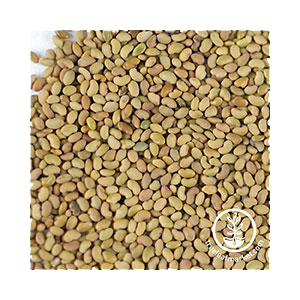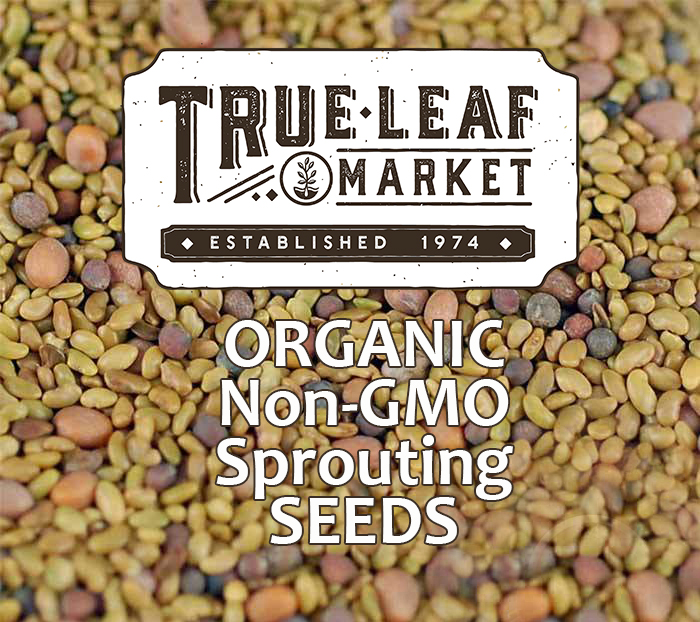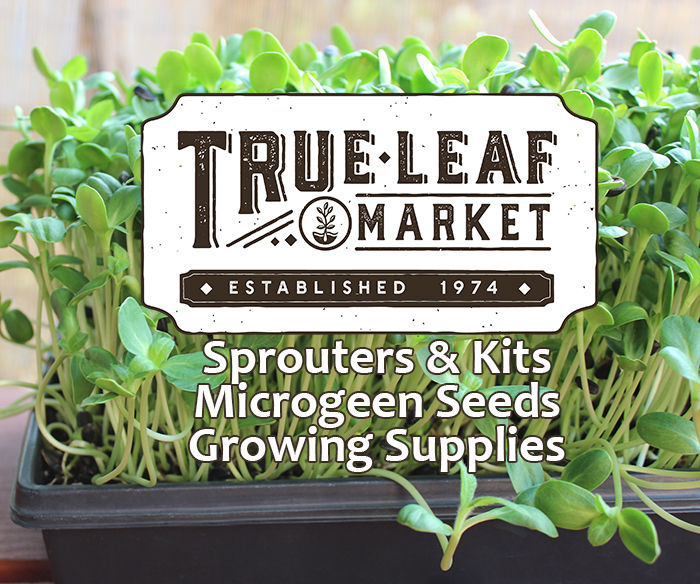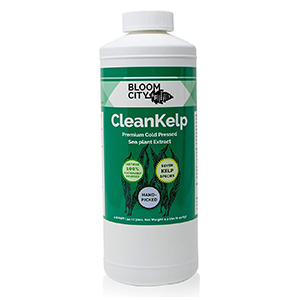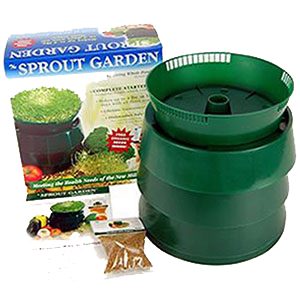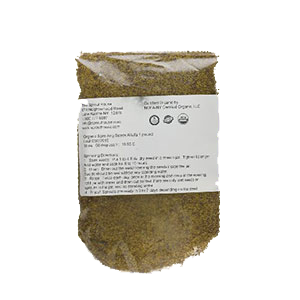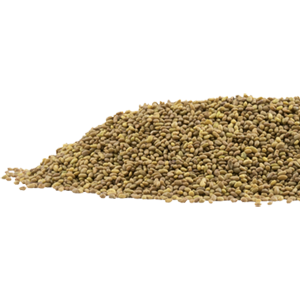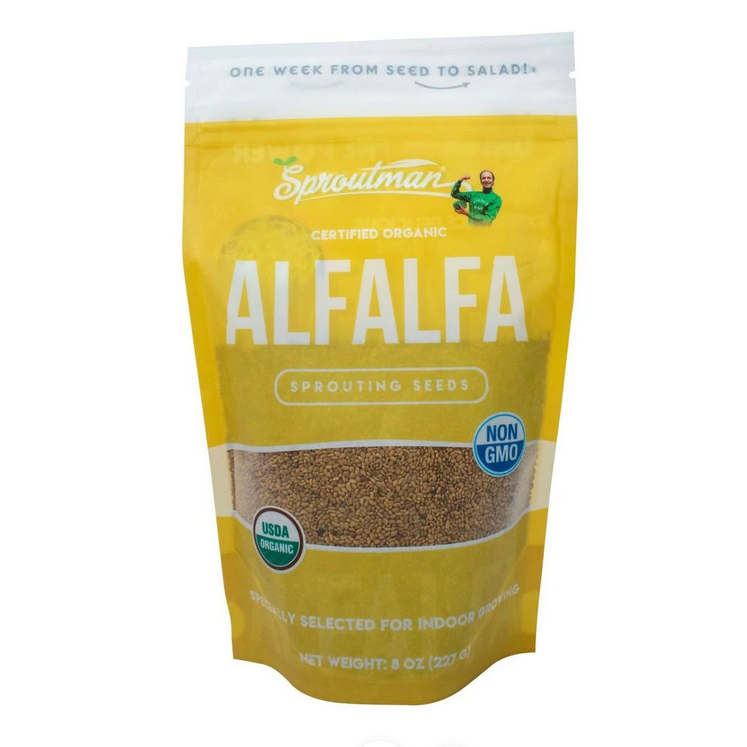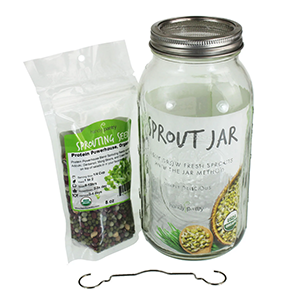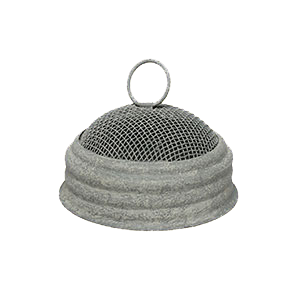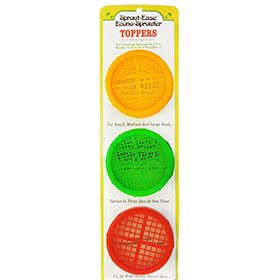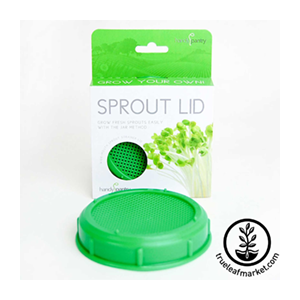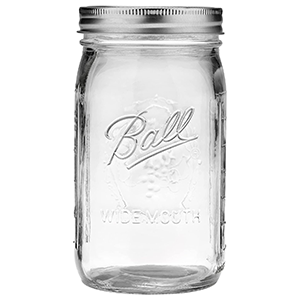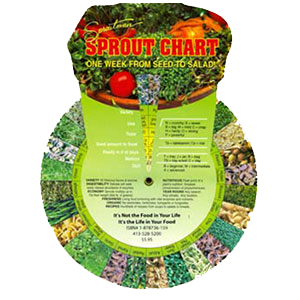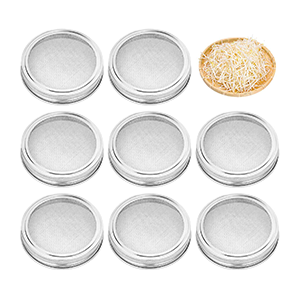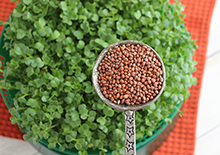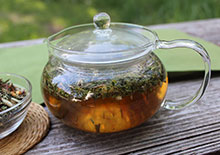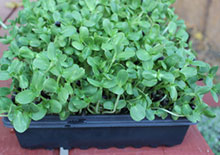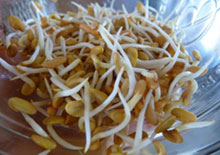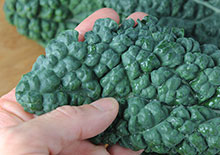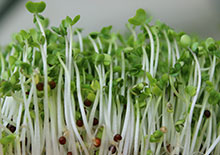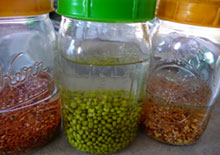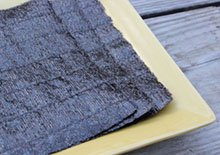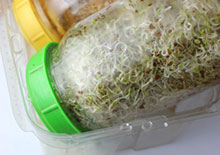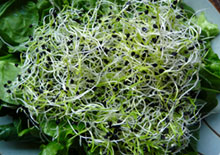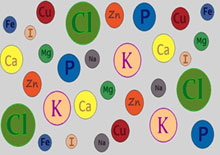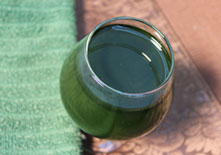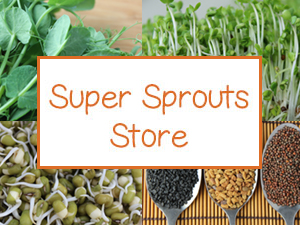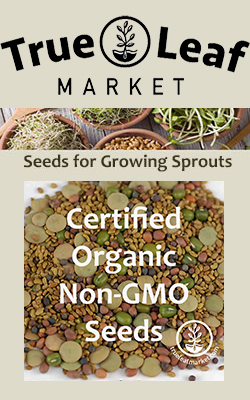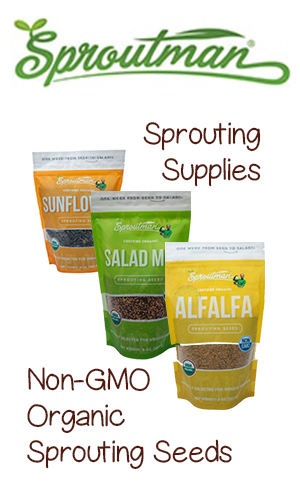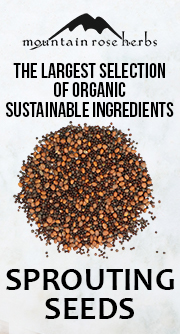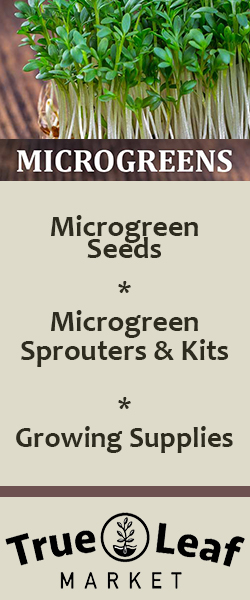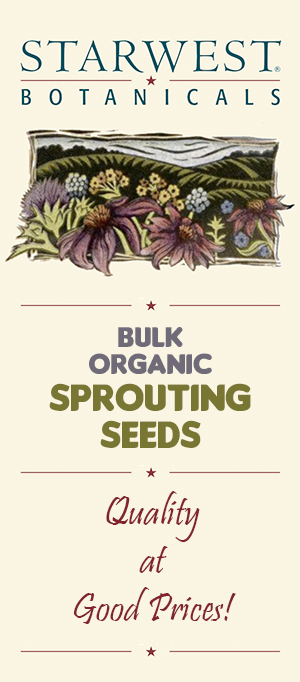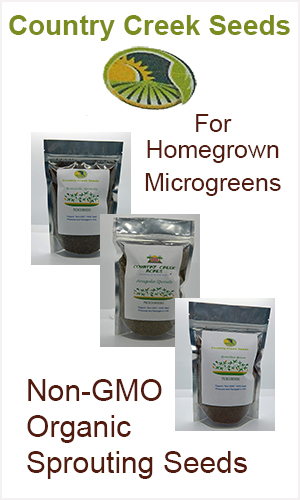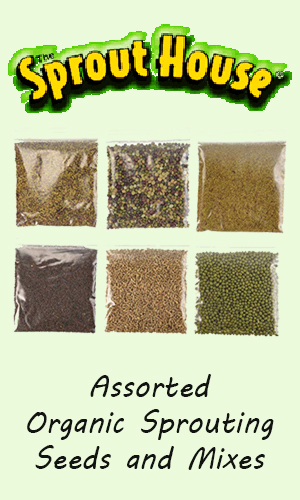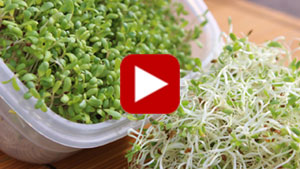- Home
- Super Sprouts
- Alfalfa Sprouts Nutrition
Alfalfa Sprouts Nutrition, How to Grow Your Own High Quality Sprouts
Intro | What are Alfalfa Sprouts? | Growing Alfalfa Sprouts | Nutrition | L-Canavanine | Purchasing Seeds | How to Grow | Precautions | Shop
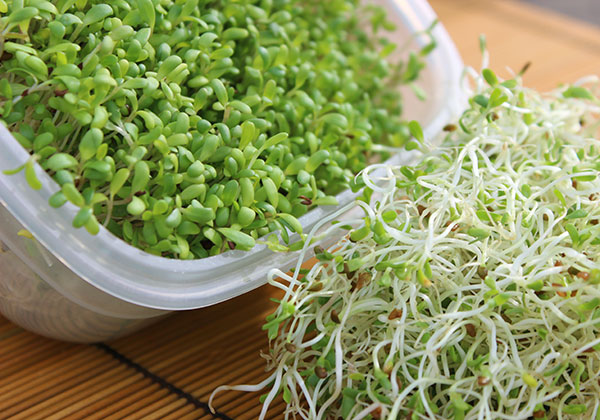
Alfalfa sprouts are one of the original sprout varieties largely popularized in the 1970's with the Western health food movement. Since this time they have been the world's most familiar type of sprout to consume on sandwiches, wraps, salads and incorporated into healthy restaurant menus.
Being very easy to grow and mass produce, they are one of the few sprouts found in common everyday grocery stores.
Table of Contents
Intro | What are Alfalfa Sprouts? | Growing Alfalfa Sprouts | Nutrition | L-Canavanine | Purchasing Seeds | How to Grow | Precautions | Shop
Typically grown vertically and sold in small square containers or larger flats, they are a living enzyme-rich food that can be easily incorporated into the diet or interchanged periodically with other sprout favorites.
Most people enjoy the sprouted seeds of alfalfa, particularly for their delicious mild nutty flavor and crunchy texture that goes well with most foods. For those specifically looking to improve their diet, alfalfa sprouts can be an energizing place to start.
Many who follow a raw vegan diet also find that the benefits of sprouts, like alfalfa, help to round out one's nutritional intake, adding extra amounts of protein and other phytonutrients.
Alfalfa sprouts are naturally abundant in antioxidants, saponins and certain plant compounds such as coumestans and, like other legumes, are a known source of phytoestrogens, primarily the polyphenol coumestrol.
Both high in fiber and alkaline in nature, eating more sprouts on a regular basis can be an excellent digestive adjunct for heavier rich foods like meat proteins, fats, oils and dairy products. Likewise, they are a worthy addition to raw meals or atop cooked foods for added enzyme content.
These mentioned beneficial attributes, plus the chlorophyll content,
also make the sprouts a cleansing as well as nutritious food
source.
What are Alfalfa Sprouts?
Alfalfa sprouts are the young double-leaf seedlings of the alfalfa plant, Medicago sativa. Also called "lucerne", alfalfa is a perennial species of the pea family Fabaceae. Grown since ancient times, it is an agriculturally efficient food crop, highly utilized as a livestock foraging food source as well as dried like hay for animal feed. It is commonly cultivated as a cover crop for its nitrogen-fixing attributes and ability to improve the fertility of the soil.
Mature dried alfalfa leaf and powder is additionally used by herbalists and frequently consumed as a nutritive tea high in vitamins and minerals, but is also available as a dietary supplement in the form of capsules or compressed tablets.
Alfalfa sprouts, although originating from the mature alfalfa plant, are created by
germinating the small legume-like seeds that actually resemble tiny dry
beans upon close observation. After soaked and sprouted over a 3-7 day
period of time, long leggy white sprouts develop with two small leaves
that will continue to green with adequate lighting.
The sprouts
grow between 2-6 inches (5-15 cm) high and are often dehulled in the
later stages by soaking briefly in pure water to remove most of the hulls. These are thin chaffs or skins that surround the seed and attach to the end of the sprout leaves.
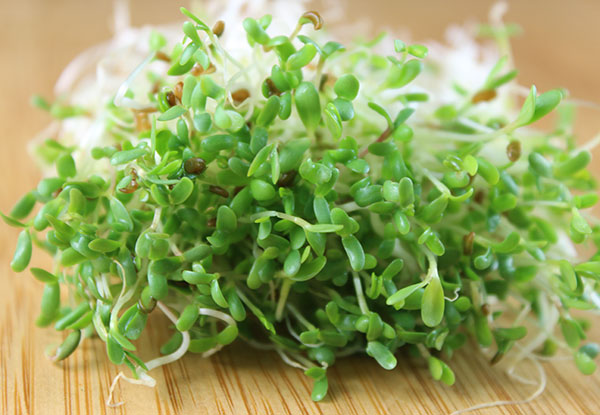
Growing Alfalfa Sprouts
Alfalfa sprouts are relatively easy to grow all year long in most any
indoor living space. They are perfect for urban city dwellers when outdoor gardens are less of an option.
The seeds themselves have a long shelf life and are extremely cost effective when purchased by the pound. Visit our sprouting guide page for helpful tips and measurements.
Alfalfa Sprouts Nutrition
1) Contains Coumestrol, A Dietary Phytoestrogen
2) Research on Anti-Inflammatory Effects
3) A Cleansing Enzyme-Rich Food, High in Fiber
4) Sprouting Increases Protein and Nutrient Content
5) Other Beneficial Nutrients
Contains Coumestrol, A Dietary Phytoestrogen
Clover sprouts, alfalfa sprouts and pea shoots are all high in a substance known as coumestrol, a phytoestrogen that belongs to a class of chemical compounds known as coumestans. Dietary phytoestrogens come from three distinct categories, the lignans, the isoflavonoids or the coumestans, all of which are predominant in the legume family.
Phytoestrogens or "plant estrogens”, like coumestrol, are found in many commonly eaten seeds, grains, and beans, as well as a variety of medicinal herbs used to treat female reproductive disorders.
According to Wikipedia: dietary estrogens are "a diverse group of naturally occurring nonsteroidal plant compounds that, because of their structural similarity with estradiol, have the ability to cause estrogenic or/and antiestrogenic effects, by sitting in and blocking receptor sites against estrogen." (*)
Interestingly, in a Cornell University program studying phytoestrogens effects on breast cancer risk they were described accordingly: "Working as estrogen mimics, phytoestrogens may either have the same effects as estrogen or block estrogen’s effects. Which effect the phytoestrogen produces can depend on the dose of the phytoestrogen. The phytoestrogen can act like estrogen at low doses but block estrogen at high doses." (*)
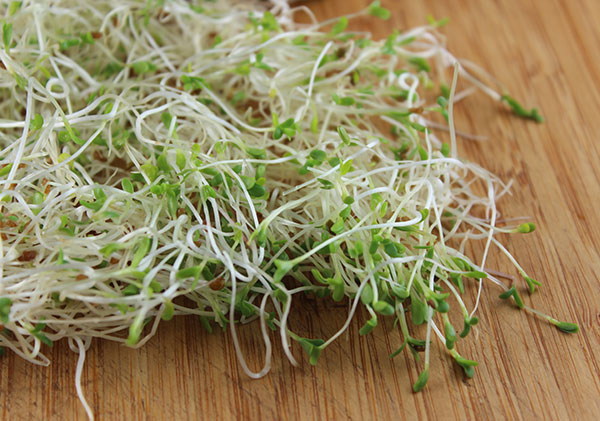
There is some controversy in the holistic health and medical community about the topic of phytoestrogens and their effect on the endrocrine hormonal system. While we would agree that phytoestrogens are not appropriate for all people and should be largely avoided by women with hormone receptor-positive breast cancers, fibroid or tumor growth, phytoestrogens, like resveratrol, quercetin and coumestrol, have been shown to be health enhancing disease-fighting substances.
Scientific research is furthermore exploring the consumption of phytoestrogen-rich foods and their nutritional benefits for improving bone density as well as maintaining good cholesterol levels, potentially offering protective results for a number of related conditions such as osteoporosis and cardiovascular disease. Current studies also suggest that dietary phytoestrogens may provide chemopreventive properties and anticarcinogenic effects.
In a study
published in the International Journal of Cancer analyzing coumestrols
effects as an anticarcinogen it was stated that, "Our results show a
reduced risk for gastric cancer associated with higher consumption of
several polyphenols including the cinnamic acids, secoisolariciresinol
and coumestrol." Another 2013 study showed that "coumestrol exerted strong inhibition effects on the growth of three cancer cell lines."
Consuming
plant-based estrogenic-foods, like alfalfa sprouts and other legumes,
are commonly recommended to menopausal women to reduce hot flashes and
normalize endocrine functions. (*)
Another beneficial component to dietary phytoestrogens is that they help to combat the effects of xenoestrogens, hormonal disrupters produced from toxic man-made chemicals that pollute our water, air and foods. While xenoestrogens can bind to estrogen receptor sites, when phytoestrogens already occupy the site the xenoestrogenic compound is neutralized and unable to attach.
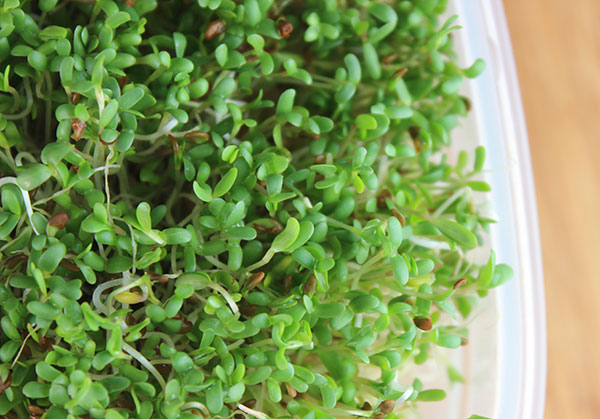
Research on Anti-Inflammatory Effects
In the Journal of Biomedical Sciences, a study analyzing the inhibitory effects of alfalfa sprouts on lipopolysaccharide-induced inflammation, it was concluded that, "this study demonstrated that alfalfa sprouts extract in ethyl acetate significantly suppresses serum production of pro-inflammatory cytokines and increases survival in lipopolysaccharide-challenged mice.
A Cleansing Enzyme-Rich Food, High in Fiber
One of the great benefits to eating different types of sprouts is their high enzyme content. These enzymes are also found in fresh raw fruits and vegetables as well as fermented foods. They are very helpful for breaking down the foods we eat into usable nutrients and aid in the processing of undigested waste material.
Seeds release a significant amount of enzymes at the beginning stages of the plants growth after the sprout has formed and the first set of leaves have developed. According to the book Conscious Eating, "Some have estimated that the enzyme content is 10 times greater at this 1 1/4 inch sprouting stage."
Sprouts, like alfalfa, assist in activating the immune system and are cleansing to the body. Their chlorophyll-rich leaves are especially effective at removing toxins from the cells and lymphatic system. They are also high in dietary fiber which promotes healthy bowel movements and digestive functions.
Sprouting Increases Protein and Nutrient Content
Alfalfa sprout seeds are first soaked and rinsed to remove enzyme inhibitors and also to help initiate germination. As the seed is nutritionally activated through the process of sprouting, it begins to break down starches into simpler carbohydrates, fats into fatty acids and proteins into amino acids. This, in effect, makes these nutritional components more bioavailable to us when we consume them.
Alfalfa sprouts are known to contain as much as 35% protein and, like other sprouted seeds, provide an increase in total amino acid content when the seed is sprouted.
Most people don't think of certain foods like leafy green vegetables or sprouts to be high in protein, but in actuality they are good supplemental sources of plant-based amino acids. Although not quite as protein-rich as other superfoods like spirulina and hemp proteins, sprout varieties, like pea shoots, mung bean sprouts, clover, radish, and alfalfa are considerably high in protein content averaging about 1.5-3 grams of protein per one cup serving.
Being a member of the pea family, alfalfa sprouts form from their tiny little bean-shaped seeds, and while they are not a "complete protein" they do provide a number of amino acids such as threonine, isoleucine, leucine and lysine.
For optimal protein uptake from alfalfa sprouts it is best to consume them raw as opposed to cooked. High heat is known to destroy protein and reduce the amount available when ingested as a food source.
Other Beneficial Nutrients
Based on a 2000 calorie diet, one cup of the sprouted seeds of alfalfa are reported by Nutritional Data to contain 13% the RDA for vitamin K, 5% for vitamin C and 1% for vitamin A. The sprouts are comprised of a number of B vitamins like riboflavin, folate, niacin, thiamin, pantothenic acid and vitamin B6. Along with trace amounts of certain minerals such as copper, manganese, calcium, iron and zinc, alfalfa sprouts are also a source of omega fatty acids with a one cup serving providing 57.8mg omega-3 fatty acids and 77.2mg omega-6 fatty acids.
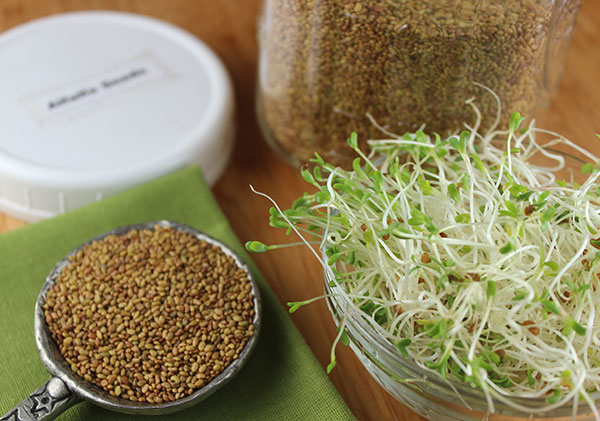
Alfalfa Sprouts and Potential L-Canavanine Content
Alfalfa seeds are known to contain a controversial plant compound called L-canavanine (or canavanine), which has received mixed reviews about its potential toxicity and/or benefits to humans when consumed in large amounts. This is because L-canavanine, in older research, has been linked with an autoimmune condition in primates known as systemic lupus erythematosus (SLE).
In the 1982 edition of American Journal of Kidney Disease, the study reported that "ground alfalfa seeds" were given to primates, while at the same time the magazine "Science" reported that the monkeys were fed actual "alfalfa sprouts." This is conflicting information as there is a big difference between the two.

The amount of canavanine in alfalfa "sprouts" is significantly less
compared to the actual "seed", which mostly serves as a growth inhibitor
and a defense against natural predators. When the seed is sprouted much
of the canavanine is neutralized because it is no longer needed to
protect it.
Moreover, in a study reported in the journal entitled "Nutrition and Metabolism" evidence indicated that dietary L-canavanine in fact increases longevity in mice. It was additionally stated in this published study that "These were serendipitous findings during a project designed to explore the mechanism of diet-induced autoimmunity. Ironically, no positive ANAs [antinuclear antibodies] or anti SSDNA or anti dsDNA titers [found in those with systemic lupus erythematosus] were detected in these mice as a result of canavanine treatment."
You should, of course, always use high quality raw, non-GMO organic seeds to avoid some of the food safety issues associated with conventionally grown sources.
Many health experts believe that the L-canavanine is considerably neutralized after 7 days of sprouting, especially after fully developed leaves are produced. The canavanine content is additionally thought to vary considerably from different select strains of the Medicago sativa species. Sprouts with seeds and hulls attached are also noted to contain more L-canavanine by volume.
You must ultimately do your own research and come to your own conclusions if you are at all concerned about potential L-canavanine toxicity. An important fact to consider, however, is that alfalfa sprouts have been consumed on a large scale for over 40 years by the general population with positive results, earning their reputation as a health enhancing and nourishing food source.
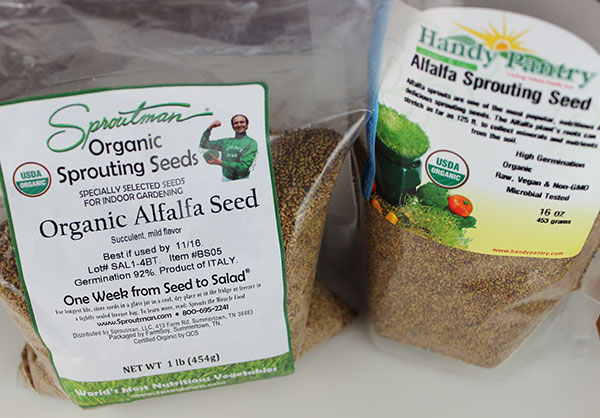
Purchasing Alfalfa Sprouts and Sprouting Seeds
It is best to avoid commercially produced non-organic sprouts or seeds, for the reasons previously mentioned. We highly recommend growing your own alfalfa sprouts for quality control as well as the highest amount of beneficial nutrients. When growing alfalfa sprouts, we advise using organic seeds that have been tested for germination rate and purity.
To guarantee freshness and viability it is helpful to buy them in sealed airtight bags. One pound bags are also considerably more cost effective than buying smaller quantities.
We always store all our sprout seeds in glass mason jars to ensure longevity. Some seeds, especially alfalfa and clover, tend to go rancid if not sealed appropriately. Generally the shelf life for alfalfa is about 4 years, when stored in a cool, dark, dry location.
Bulk seeds are great to have as a potential survival food, next to wild edible greens, and can literally supply pounds of fresh living produce, ready to sprout most any time of year.
How to Grow Alfalfa Sprouts
One of the best things about alfalfa sprouts is that they are very easy to grow at home with a few basic supplies. You will additionally not only get fresh living produce, a little over a tablespoon of seeds will literally generate over 4 packed cups of sprout vegetable for you to enjoy tossed into salad mixes or used as a side garnish to accompany most any raw or cooked entree.
There are basically two methods to growing alfalfa sprouts. The simplest technique is jar (or bag) sprouting and the other is the tray sprouting, which we call "vertical sprouting."
Alfalfa Seed Sprouting Guide
Seeds: 1 ½T alfalfa seeds (per quart jar or small 8"x8" round sprouting tray)
Soak Time: 8 hours
Temperature: 60-85° F (15-29° C)
Sprouting time: 3-7 days
Yield: Approximately 4-5 cups of sprouts
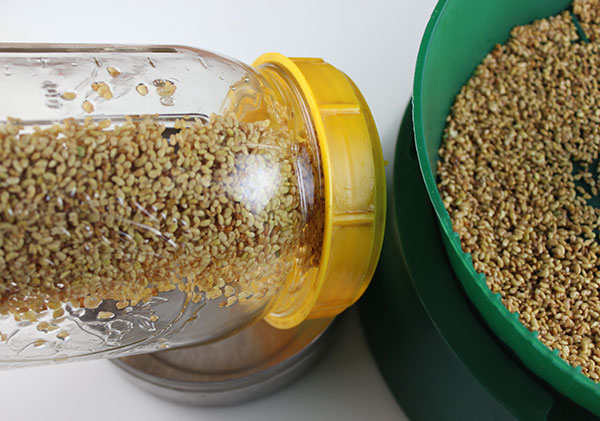
Steps for Growing Alfalfa Sprouts
1) Soaking the Seeds - Soak 1 ½T of alfalfa seed in half a quart of pure water overnight or for at least 8 hours.
2) Straining Seeds - With a fine mesh lid strain your jar of seeds. For jar sprouting, tilt the jar at an angle into a draining dish or tray using a fine mesh lid. If tray sprouting, place the seeds evenly on top of a commercial tray sprouter with a lid.
3) Rinse and Drain - Over the next 5-7 days you will need to briefly soak your sprouting seeds in cool pure water and allow to drain as mentioned above. Tray sprouters have tiny holes in the bottom and can be placed in a water collection tray and soaked.
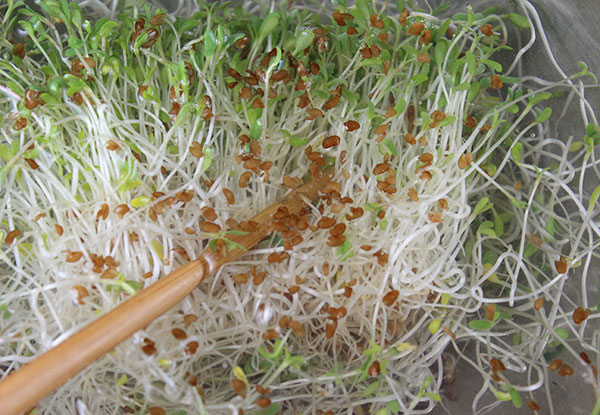
3) Dehulling the Sprouts - Usually about day 5-7 you will need to dehull the sprouts. This can be achieved by removing the sprouts from the jar and placing them in a bowl of water, stirring gently with a chopstick and allowing the hulls to float to the top where they can be strained off. Also, un-germinated seeds will sink to the bottom and can be removed to lessen risk of rot. When tray sprouting, commercial trays can be submerged in another tray of water and the hulls will float to the top where they can be easily removed.
4) Greening the Sprouts - When sprouts produce a mature set of two leaves (usually about the 4th day) you can take further steps to green them in a sunlit window, mild direct sunlight or full-spectrum hydroponic lighting.
Depending on the temperature, you should have a full tray or jar of alfalfa sprouts by day 6. Temperatures below 60° F (15° C) will naturally take a few days longer.
We use 1 1/2T of seed per tray, which produces a thick hedge of sprouts that are slightly curved. If you want long straight sprouts, it is best to reduce the amount of seed by 1/2T.
(Visit our Super Sprout Store for our recommended seed and sprouting supplies.)
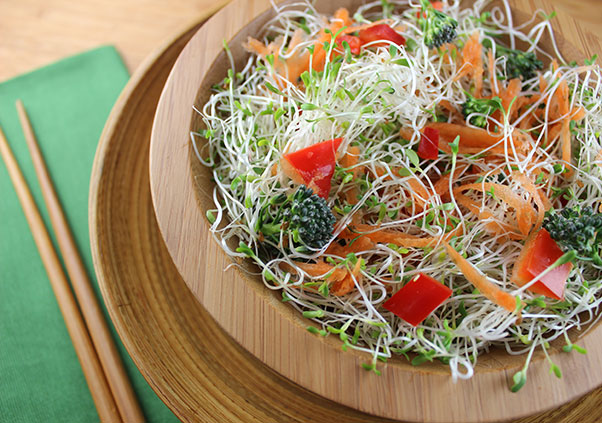
How to Use
Alfalfa sprouts are traditionally consumed raw in salads, but can also be used as a replacement for lettuce in vegetable salad recipes. They have a mild flavor that goes well with savory foods and are delicious when served as appetizers with seed cheeses and sauerkraut. Their texturally pleasing qualities combine well in wraps, sandwiches and nori rolls.
When creating sprout salad mixes, their neutral taste blends well with other spicy sprouting seed variations, like broccoli, radish and onion sprouts.
They can be used as a garnish with most any raw or cooked meal, providing adding nutrients and living enzymes.
Precautions:
When sprouts are grown inappropriately they can be contaminated with mold, which is especially detrimental to those with mold allergies. It is important to purchase commercially grown sprouts from a trusted organic source that takes precautionary steps to guard against mold and/or uses organically grown seeds to help prevent potential Salmonella and E. coli contamination.
Shop Related Products (About Affiliates & Amazon Associate Paid Links)
Affiliate Disclaimer: This section contains affiliate product links. If you make a purchase through our recommended links, we receive a small commission at no additional cost to you. Thanks for the support.

